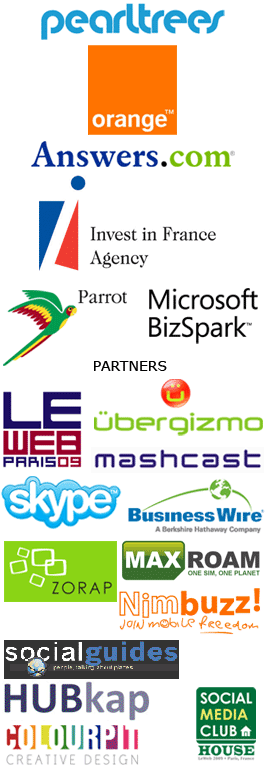How to sift through Twitter’s noise? MyTweetSense, FriendBinder give it a go
by Kim-Mai Cutler on December 10, 2009 at 7:15 pm
Now that there are plenty of apps for reading your entire Twitter stream, here comes the hard part. How do you build filters that automatically find the most interesting bits from a stream that can contain more than 100 tweets an hour?
Two apps I’ve taken a look at the Le Web conference in Paris are giving that a shot, taking very different approaches.

One is MyTweetSense. It’s an iPhone Twitter client that uses artificial intelligence to study your behavior, what you like to look at, and then ranks all new information coming in accordingly. Say you tend to click on tweets with the word “hamburger” in them or you tend to reply to specific people. In the future, tweets that include the same word or that come from that person might be ranked higher in your stream in the future. Another factor it considers is how long you look at an item on your phone, whether that involves actually clicking on the tweet or simply viewing it for a long time on your phone’s screen.
These are all basic examples of how MyTweetSense uses this feedback, although CEO Barak Hachamov says the filtering is a little more sophisticated. The beauty of the design is that it requires no explicit action. You don’t have to take the time to edit out or unfollow accounts.
The downside is that information that is so highly personalized might exclude or de-emphasize tweets or links that are unexpectedly interesting. Hachamov says MyTweetSense accounts for this by looking at what other users with a similar profile are engaging with. (Facebook also has its own variation of this for their main feed, that ranks updates based on your interaction with the other person, and how many comments or likes an individual post gets.)
Hachamov says he sees MyTweetSense as a complement, not a competitor, to other clients like TweetDeck and Seesmic and that the company may pursue partnerships and license out its relevancy technology to others. Naturally, the software could also be used to surface highly relevant and personalized advertising. The Israeli startup has raised $2 million from angel investors.
![]()


